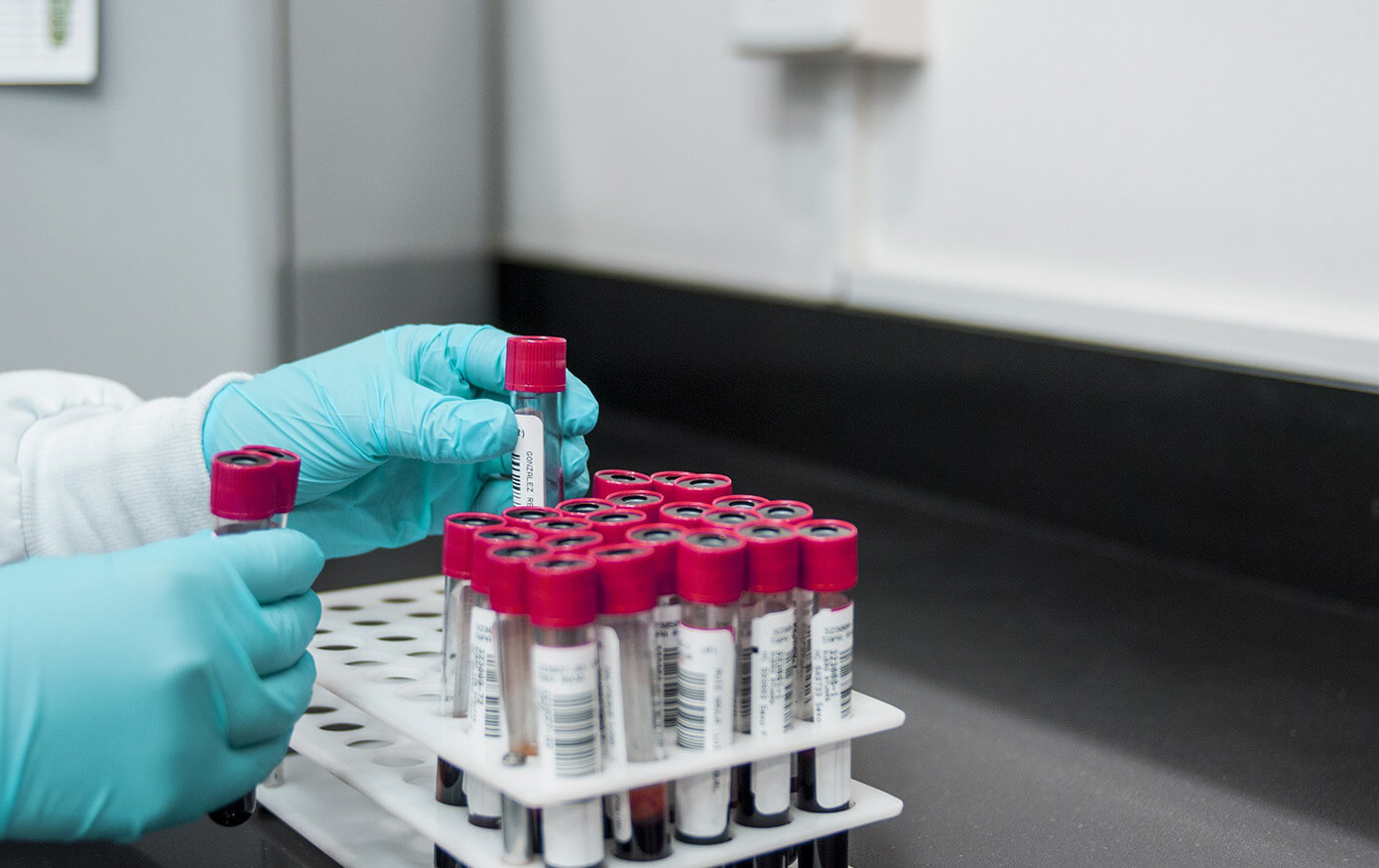Last updated: February 16, 2024
13 mins read
Key Takeaways
- FSH is crucial for reproductive functions, regulating the menstrual cycle in women and sperm production in men. Understanding its role is key for assessing fertility and reproductive health.
- Abnormal FSH levels can indicate health issues like POI and PCOS in women and testicular damage in men. Its measurement is essential for diagnosing and understanding various reproductive conditions.
- Regular monitoring of FSH levels provides insights into changes in ovarian reserve and sperm production quality. This is crucial for informed decisions regarding fertility and overall reproductive health management.
Introduction
Follicle-Stimulating Hormone (FSH) plays a crucial role in the human body, particularly in the reproductive system. It is produced by the pituitary gland and is involved in sexual development and reproduction for both males and females. In females, FSH stimulates the production of estradiol and regulates the menstrual cycle, peaking just before ovulation. In males, FSH works with testosterone to maintain normal sperm count and function. FSH levels fluctuate during the menstrual cycle, with a peak in levels typically triggering ovulation.
In women’s health, FSH is particularly significant. High levels of FSH may indicate conditions such as primary ovarian insufficiency (POI), polycystic ovary syndrome (PCOS), perimenopause, ovarian tumor, or Turner syndrome. Low FSH may indicate a pituitary gland disorder, hypothalamus disorder, insufficient egg production, or significant malnutrition. For males, high FSH may indicate testicular damage or Klinefelter syndrome, while low FSH may indicate pituitary gland or hypothalamus disorders. While high or low FSH may indicate certain conditions, FSH alone should not be used for diagnosis. FSH should be used in conjunction with other symptoms, biomarkers, and disease indicators. For these reasons, if you are concerned with your results, it is important to consult with your physician.
Understanding FSH
Follicle-Stimulating Hormone (FSH) is a gonadotropin, a type of hormone essential for reproductive processes in both females and males. In women, FSH is key to the growth and maturation of ovarian follicles, each containing an egg. It’s released by the pituitary gland and plays a critical role in regulating the menstrual cycle and stimulating the ovaries to produce estrogen. In the context of fertility, FSH levels are inversely indicative of ovarian reserve and function (i.e. high FSH indicates low ovarian reserve), making it crucial for understanding a woman’s fertility potential at different stages of her reproductive life.
In men, Follicle-Stimulatin Hormone (FSH) plays a crucial role in reproduction, primarily by regulating the function of the testes. In males, FSH is secreted by the pituitary gland and is instrumental in the development and maturation of sperm. It acts directly on the Sertoli cells in the testes, which are essential for nurturing and supporting the development of sperm cells through the process of spermatogenesis. FSH stimulates these cells to produce and secrete various substances that promote sperm cell growth. Additionally, FSH is involved in increasing the concentration of testosterone-binding protein, which ensures a high local concentration of testosterone – essential for proper sperm development. This hormone’s activity is closely regulated by the hypothalamic-pituitary-gonadal axis, ensuring that sperm production is maintained at optimal levels for male fertility.
Importance of Tracking FSH for Females
- Repeat testing of FSH levels allows women to track changes over time, providing a clearer picture of their reproductive health and fertility status. Regular monitoring can indicate the onset of changes in ovarian reserve, especially as women age, and assist in making informed decisions about family planning and potential fertility treatments. It’s a valuable tool in understanding and managing reproductive health across different life stages.
- SiPhox Health facilitates this through at-home tests, providing convenient and regular monitoring of FSH levels, and empowering women with valuable information for informed decision-making regarding their reproductive health.
- Typically, a doctor might order an FSH test only once or infrequently, often in response to specific symptoms or concerns. This limited testing can miss fluctuations and trends in FSH levels over time, which are crucial for understanding a woman’s reproductive health and fertility status comprehensively. Regular, long-term tracking provides a more detailed and dynamic picture, allowing for better-informed decisions and timely interventions. This approach is more optimal than relying on single or infrequent tests for understanding and managing reproductive health changes.
Research from ‘Clinical Obstetrics and Gynecology’ highlights the predictive value of FSH levels in assessing ovarian function. One key insight is that elevated FSH levels in women, particularly in the early follicular phase of the menstrual cycle, can be a sign of reduced ovarian reserve. This information is crucial for understanding fertility potential and planning for conception.
Importance of Tracking FSH for Males
Assessing Reproductive Health
FSH is integral to male reproductive health, primarily because it governs spermatogenesis, the process of sperm production in the testes. In cases of infertility or reduced fertility, measuring FSH levels can provide crucial insights. Low levels of FSH are often linked to a decreased sperm count or poor sperm quality, whereas high levels might suggest a failure in the testicular response. This information is vital for understanding an individual’s reproductive capabilities and planning appropriate interventions or treatments. [1]
Diagnosing Hormonal Imbalances
Hormonal balance is crucial for overall health, and FSH plays a significant role in this equilibrium. Disorders like hypogonadism, where the body produces insufficient testosterone, can be detected through abnormal FSH levels. Symptoms of hormonal imbalances, such as reduced libido, erectile dysfunction, or changes in physical characteristics, can be distressing. By tracking FSH levels, healthcare providers can diagnose these imbalances early and prescribe suitable treatments to alleviate symptoms and restore hormonal balance. [2]
Evaluating Testicular Function
The health and functionality of the testes are directly reflected in FSH levels. Abnormal readings can indicate various conditions, ranging from testicular atrophy to damage caused by trauma, surgery, or infections. Men who have experienced such issues can benefit significantly from regular FSH monitoring, as it helps in early detection and treatment of potential complications, ensuring better long-term testicular health. [3]
Monitoring Treatment Response
For men undergoing treatments for infertility or hormonal imbalances, monitoring FSH levels is a key part of the therapeutic process. It allows healthcare providers to track how effectively the body is responding to the treatment. Therapy adjustments, whether they involve hormone replacement, surgical interventions, or lifestyle changes, can be guided by changes in FSH levels, leading to more successful outcomes. [4]
Detecting Underlying Conditions
Elevated FSH levels can sometimes signal issues beyond the reproductive system, such as disorders of the pituitary gland, which regulates the production of various hormones. Conditions like Klinefelter syndrome, a genetic disorder affecting male chromosomes, or varicocele, an enlargement of the veins within the scrotum, can also alter FSH levels. Detecting these conditions early can lead to more effective management and treatment. [5]
Guiding Clinical Decisions
Understanding a patient’s FSH levels helps clinicians make more informed decisions regarding their care. It plays a crucial role in determining the best approach to treatment, be it hormone therapies, surgical interventions, or assisted reproductive techniques like in vitro fertilization (IVF). Additionally, FSH levels provide valuable information for counseling men about their fertility prospects and future family planning options. [6]
FSH Levels and Pregnancy
- Optimal FSH levels for conception typically range from about 4.7 to 21.5 mIU/mL [7], depending on a woman’s age and the specific phase of her menstrual cycle. Lower FSH levels are generally more favorable for fertility. However, individual factors and health conditions can influence these levels. It’s important to consult with a healthcare provider for personalized assessment and guidance.
- Even with higher FSH levels, conception can still be possible, but it may become more challenging. Each woman’s fertility profile is unique, and FSH is just one of many factors influencing it.
- Knowing FSH levels before and after attempting to get pregnant helps in understanding a woman’s fertility window and potential challenges. Pre-pregnancy, it can indicate ovarian reserve and readiness for conception. Post-pregnancy, it aids in monitoring recovery and understanding any changes in fertility, especially in cases of difficulties in conceiving or planning for future pregnancies. This knowledge is vital for informed health decisions and family planning. For personalized advice, consult with a healthcare provider.
FSH and Women’s Age-Related Fertility
FSH levels naturally vary with age in women. In the reproductive years, FSH levels fluctuate within the menstrual cycle, with a notable increase triggering ovulation. As women approach menopause, their ovarian reserve declines, leading to a significant rise in FSH levels. This increase is a response to decreased estrogen production, as the body attempts to stimulate the ovaries to produce more estrogen. The elevated FSH levels during this phase can be a marker of the transition into menopause. [8]
As women approach their late 30s and 40s, FSH levels may start to rise, signaling a decrease in ovarian reserve. This increase becomes more pronounced as women near menopause, typically in their late 40s to 50s, reflecting the diminished estrogen production and reduced fertility. These age-related changes in FSH levels are key indicators of a woman’s reproductive life stage. [9]
Strategies to Optimize FSH Levels
Lifestyle Changes
Managing stress through techniques like meditation, yoga, or regular exercise can help regulate hormone levels, including FSH. Adequate sleep is crucial, as disrupted sleep patterns can affect hormonal balance. Avoiding smoking and limiting alcohol consumption is also beneficial, as these can impact FSH levels and overall fertility.
Dietary Changes
A balanced diet rich in antioxidants can support reproductive health. Foods high in antioxidants, such as fruits, vegetables, nuts, and whole grains, are recommended. Reducing intake of processed foods and maintaining a healthy weight through diet and exercise is key, as obesity can affect hormone levels.
Supplement Regimen
- To Lower FSH Levels:
- Royal Jelly: This nutrient-rich substance can help reduce FSH levels.
- Omega-3 Fatty Acids: Found in supplements like fish oil, they can assist in regulating hormone levels.
- Vitamin D: Essential for hormonal regulation, it can be supplemented or obtained from sun exposure.
- Zinc: A crucial mineral for reproductive health, which can aid in hormonal balance.
- To Increase FSH Levels:
- Oyster Polypeptides: Derived from oysters, these supplements may increase FSH levels.
- Probiotics: Supporting gut health, which in turn can impact hormonal balance.
While lifestyle and dietary changes can influence overall health, they may not directly alter FSH levels significantly and should be viewed as part of a broader health strategy. Always follow the advice of your physician when making dietary changes or introducing a new supplement.
Interpreting your Results
Females should take FSH tests on day 3[10] of their menstrual cycle. When interpreting results for FSH, it is important to consider how dynamic this hormone can be. In those who menstruate, FSH varies considerably between the follicular and luteal phases of the menstrual cycle. Levels increase with age, but a surge occurs during perimenopause (the start of menopause) and remains high post-menopause. In males, FSH is low and is relatively static in comparison.
The following graph by Straight Healthcare shows how variable FSH can be for menstruating females, along with other hormones that are important for the regulation of the menstrual cycle.

Reference Ranges
To assist in the interpretation of test results, the American Board of Internal Medicine published reference ranges for FSH:
- Normally Menstruating Females:
- Follicular phase: 2 – 9 mIU/mL
- Mid-cycle peak: 4 – 22 mIU/mL
- Luteal phase: 2 – 9 mIU/mL
- Postmenopausal Females:
- 30 mIU/mL
- Males:
- 1 – 7 mIU/mL
Abnormally high or low levels of FSH could be indicative of a more serious issue, so please consult with your physician if you are concerned with any of your results.
Conclusion
At SiPhox Health, we firmly believe in the power of understanding your body through regular FSH monitoring. This knowledge is not just a number; it’s a window into your reproductive well-being, guiding you in making informed decisions about your fertility journey and overall health. Our easy-to-use at-home testing kits bring this vital health information right to your doorstep, making it easier than ever to keep track of your fertility health.
Tracking your FSH with SiPhox Health:
- At-home kit delivered to your home
- Fingerprick sample self-collection (low-pain, adjustable lancets)
- $295 one-time or subscribe to get $85 per test*
- Number of biomarkers included: 17 (4 Hormonal Balance markers including FSH in the female Base Panel)
- Hormone+ (includes FSH for males, as well) and Thyroid+ add-on panels
- Sleep and activity tracking: Included, 200 devices supported
- 2-5 business days after collection
Disclaimer: If you have any medical questions or concerns, please talk to your healthcare provider. The articles on the SiPhox Health Hub are underpinned by peer-reviewed research and information drawn from medical societies and governmental agencies. However, they are not a substitute for professional medical advice, diagnosis or treatment.
References






